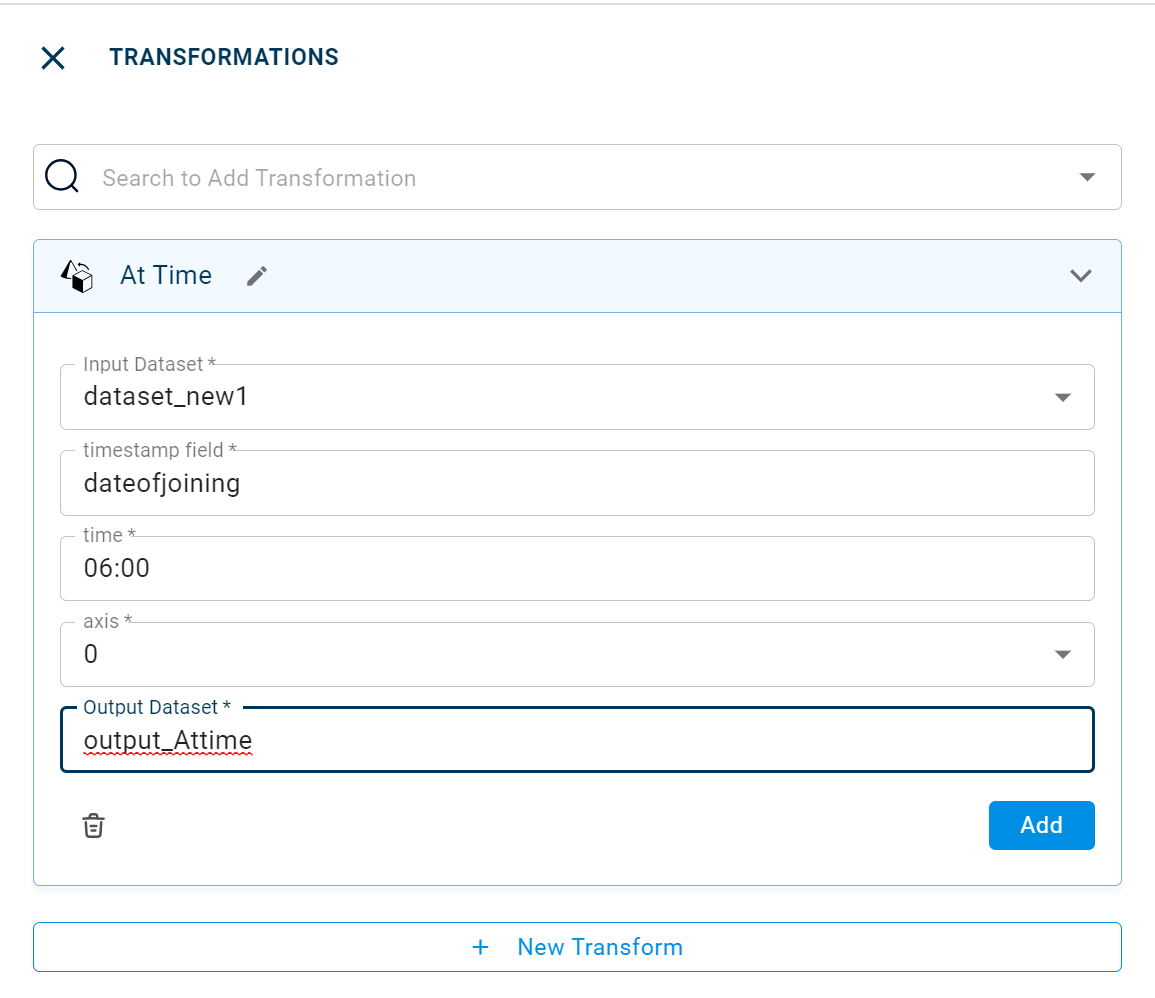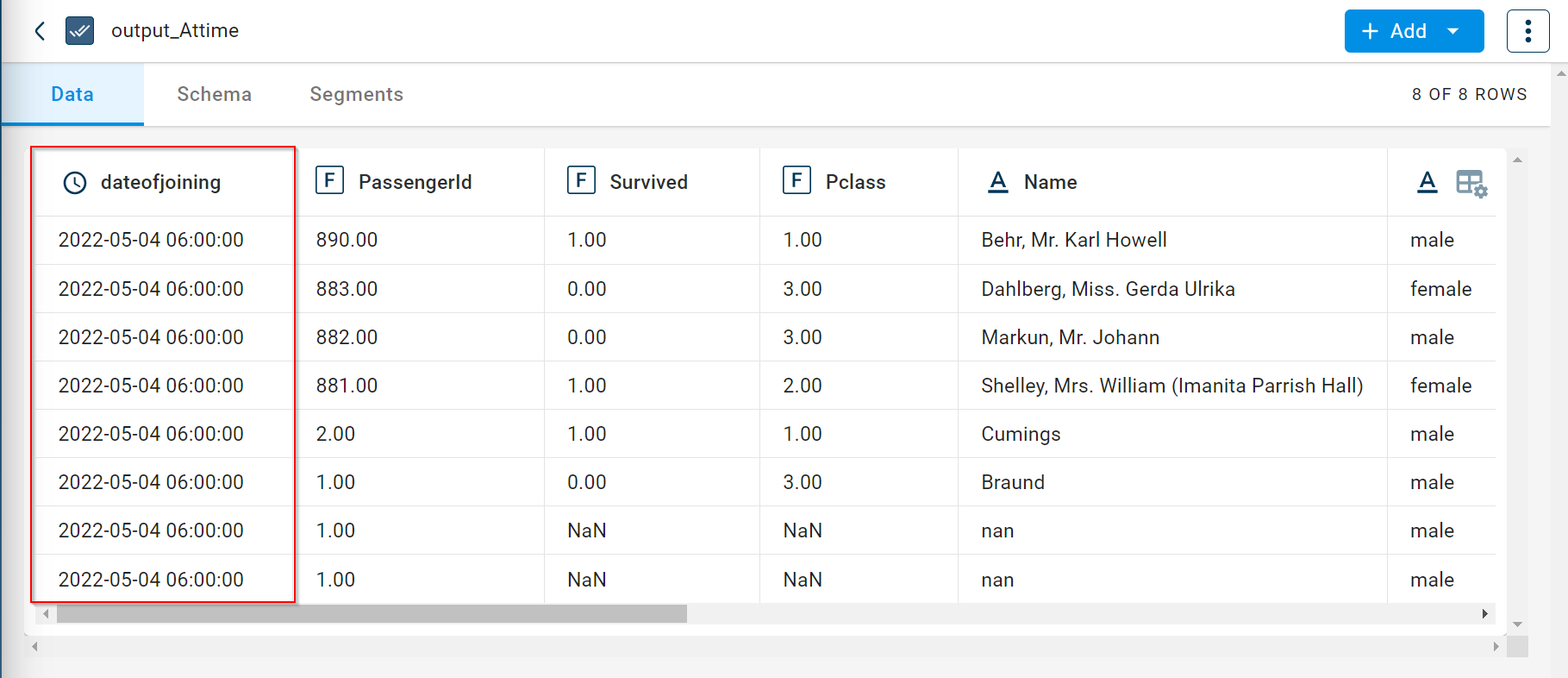At Time
This transform filters all the values in a row corresponding to a particular input time of day (e.g., 9:30 AM). If the input time is not present in the dataset, an empty dataset is returned. There should be a Datetime column in the dataset to perform this transform.
tags: [“EDA”]
Parameters
The table gives a brief description about each parameter in At Time transform.
- Name:
By default, the transform name is populated. You can also add a custom name for the transform.
- Input Dataset:
The file name of the input dataset. You can select the dataset that was uploaded from the drop-down list. (Required: True, Multiple: False)
- Output Dataset:
The file name with which the output dataset is created after filtering the values in a row by a particular time of a day. (Required: True, Multiple: False)
- timestamp field:
The name of the timestamp field in the dataset. (Required: True, Multiple: False, Datatypes: [“TIMESTAMP”], Options: [“FIELDS”], Datasets: [“df”])
- time:
The input time of the day for which values must be returned. (Required: True, Multiple: False, Datatypes: [“STRING”], Options: [“CONSTANT”])
- axis:
For Series, this parameter is unused and defaults to 0. (Required: True, Multiple: False, Datatypes: [“LONG”] , Options: [“CONSTANT”], Constant_options: [0,1])
Sample input for At Time transform:

The output after running the At time transform on the dataset appears as below:

How to use it in Notebook
The following is the code snippet you must use in the Jupyter Notebook editor to run the **At Time**transform:
template=TemplateV2.get_template_by('At Time')
recipe_At_Time= project.addRecipe([car_data, employee_data, temperature_data, only_numeric], name='At Time')
transform=Transform()
transform.templateId = template.id
transform.name='At Time'
transform.variables = {
'input_dataset':'temperature',
'output_dataset':'temperature_attime',
'timestamp':"Datetime",
'value_1':"12:00",
'value_2':0}
recipe_At_Time.add_transform(transform)
recipe_At_Time.run()
Requirements
pandas